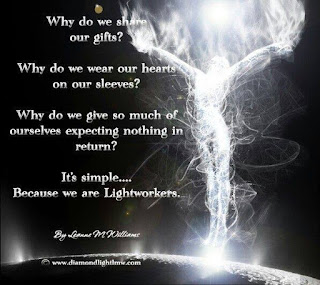"I" Statements
It is quite a common occurrence to hear people talk about experiences using the word "you" instead of "I". Why is that ? Many therapist types do not say "I" as the mainstream profession discourages too much disclosure, a protocol I abhor. I personally want to know who is trying to assist me. Is it some book educated youngster, or someone who has lived some life lessons close to my challenges? I prefer the latter but it is hard to find out if your "therapist" ever struggled with drugs, poverty, sexual orientation, suicide, etc. What a shame that this is the trend in psychology and other helping professions in this time period. In the days of tribal living, the Shaman or Medicine Woman lived in the village where one saw them, their behavior and their lifestyle on a daily basis. These days, we have no idea other than school transcripts as to who is claiming to be a therapist or some kind of New Age healer (often meaning one had the money to pay for an event that offered a certificate.)
Many people avoid "I" statements in order to not have to confront their own feelings on a situation or issue or to avoid making themselves vulnerable in any fashion. In some way I can understand this. When I have shared some posts on Facebook using the "I" perspective, I have received rather desperate responses telling me how to fix "me" or my situation, as if sharing my experience, strength and hope is a cry for help even when there is no such request (please help me, please give me some advice, etc) in the text.
A dialogue that uses"you" statements typically requires a response that agrees or disagrees which can create an immediate hostility if one even has the courage to speak up to say one has a different take on an idea or situation. "I" statements allow others to have their own reaction. "You" statements implies that one must comply, obey, or agree (especially if it is coming from an authority figure such as a teacher, parent or supervisor). "I" statements require one to "own" the memory and re-visit it on a personal level. This helps one to "check in" and see if the memory is still accurate or if time has changed one's perceptions. "I" statements do indeed offer a vulnerability, which in turn can be seen as an invitation to others that it is safe for one to also share a perspective.
In some cases, situations or society demand the use of "you" and that cannot be avoided. I find the use of "I" statements are invaluable in Healing Circles as it creates a safe venue for self-exploration and self-sharing. Hearing the stories and perceptions of others can give people the courage to perhaps share their own experiences and feelings. We are so much a culture of facade these days carefully constructing how we want to be seen on Facebook and social media in general. Presenting polished stories of success are also highly in demand in the New Age/Motivational/You Intend and Therefore Manifest It All (where apparently Spirit is meant to be our slave and give us what we want--lol). I hope my classes create a Sacred Space for us all to be real, honest, have a bit of friction and survive it, tell our sadness so it can be released as well as celebrating breakthroughs.
Many people avoid "I" statements in order to not have to confront their own feelings on a situation or issue or to avoid making themselves vulnerable in any fashion. In some way I can understand this. When I have shared some posts on Facebook using the "I" perspective, I have received rather desperate responses telling me how to fix "me" or my situation, as if sharing my experience, strength and hope is a cry for help even when there is no such request (please help me, please give me some advice, etc) in the text.
A dialogue that uses"you" statements typically requires a response that agrees or disagrees which can create an immediate hostility if one even has the courage to speak up to say one has a different take on an idea or situation. "I" statements allow others to have their own reaction. "You" statements implies that one must comply, obey, or agree (especially if it is coming from an authority figure such as a teacher, parent or supervisor). "I" statements require one to "own" the memory and re-visit it on a personal level. This helps one to "check in" and see if the memory is still accurate or if time has changed one's perceptions. "I" statements do indeed offer a vulnerability, which in turn can be seen as an invitation to others that it is safe for one to also share a perspective.
In some cases, situations or society demand the use of "you" and that cannot be avoided. I find the use of "I" statements are invaluable in Healing Circles as it creates a safe venue for self-exploration and self-sharing. Hearing the stories and perceptions of others can give people the courage to perhaps share their own experiences and feelings. We are so much a culture of facade these days carefully constructing how we want to be seen on Facebook and social media in general. Presenting polished stories of success are also highly in demand in the New Age/Motivational/You Intend and Therefore Manifest It All (where apparently Spirit is meant to be our slave and give us what we want--lol). I hope my classes create a Sacred Space for us all to be real, honest, have a bit of friction and survive it, tell our sadness so it can be released as well as celebrating breakthroughs.




Comments
Post a Comment